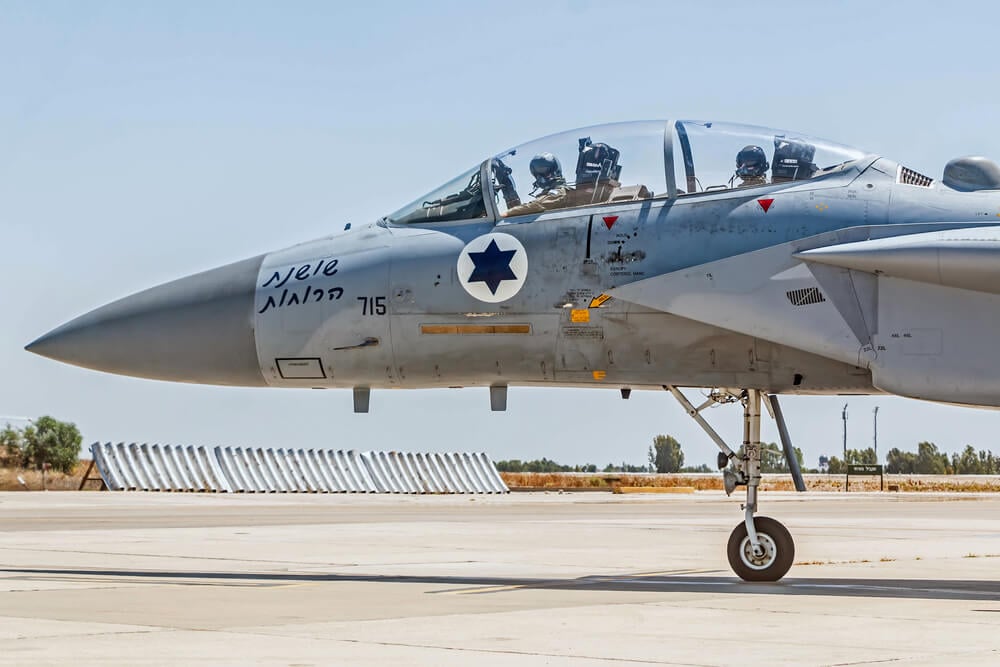The reasons that Tehran has declared unacceptable moves that will result in punishing Israel are slowly piling up. The death of Hezbollah leader Hassan Nasrallah in an Israeli attack on the command post of pro-Iranian extremists on the outskirts of Beirut is the latest in that series.
In his first address on Saturday, Iran's Supreme Leader Ali Khamenei noticeably refrained from calling for revenge despite the confirmation of Nasrallah's death, who was close to him. Instead, he called on all Muslims "to stand by the people of Lebanon and the proud Hezbollah with whatever means they have and assist them" in confronting Israel.
Just two months ago, after the assassination of Hamas chief Ismail Haniyeh in Tehran, the regime called for revenge, and the world anxiously awaited an attack on Israel. It didn't happen.
The only "promise" of a retaliatory strike against Israel that the regime in Tehran fulfilled occurred on April 14, when Iran launched a limited missile attack in retaliation for the death of Islamic Revolutionary Guard Corps commander Mohammad Reza Zahedi.
In the meantime, Israeli actions, including the decimation of their command personnel, have drastically reduced the conflict-leading potential of Hamas and later Hezbollah.
Reconfiguring strategy
Is Tehran's regime reconfiguring its strategy in the region in light of the heavy losses suffered by its militant branches in the Middle East?
Although Tehran is far from abandoning its disruptive role in the region, many indicators point to just that.
In his first appearance on the global political stage, the new president of Iran, Masoud Pezeshkian, brought a rather toned-down rhetoric from official Tehran at the just concluded UN General Assembly.
If there is any indication of a softening of Iran's position, it is coming from the very top
He spoke of a "new era" in which his country will play a "constructive role" in international relations. "This era will commence with the acknowledgement of Iran's security concerns and cooperation on mutual challenges," Pezeshkian said.
It was clear that Tehran's toned-down rhetoric was not the result of "moderation," much less the "reformism" of the Iranian president, about which there has been talk since his election in early July.
Without a doubt, his appearance at the UN was under the full control and participation of the Supreme Leader Khamenei, so if there is any indication of a softening of Iran's position, it is coming from the very top.
Admitting that Hezbollah is powerless
Iran has reasons to de-radicalise its actions in the Middle East region because it is forced to do so. The primary reason for this change was the crushing of Hamas's ability to resist the Israeli army in Gaza, particularly after the death of Ismail Haniyeh, the head of this Iranian branch.
Israel's heavy attacks on Hezbollah facilities in southern Lebanon, culminating in the bombing of its headquarters and the death of Hassan Nasrallah, thwarted Tehran's attempt to use Hezbollah's actions to increase casualties on this front of its proxy war against Israel.
CNN's Fareed Zakaria said he was surprised when the president of Iran admitted to him in an interview during his stay in New York that Hezbollah is not strong enough to match Israel.
 The Israeli response to this week's call by a dozen of Israel's key allies, including the US, for a three-week ceasefire in Lebanon is particularly commendable for the shift in Tehran
The Israeli response to this week's call by a dozen of Israel's key allies, including the US, for a three-week ceasefire in Lebanon is particularly commendable for the shift in Tehran
"Hezbollah is facing a country armed to the teeth and has access to weapons systems that are far superior to anything else," President Pezeshkian said in that interview.
If Tehran is really resorting to de-radicalisation of its strategy in the Middle East, it is largely a consequence of Israel's rejection of the demands of its Western allies, above all the US, to stop military actions in Gaza and to start with negotiations.
The Israeli response to this week's call by a dozen of Israel's key allies, including the US, for a three-week ceasefire in Lebanon is particularly commendable for the shift in Tehran, if indeed it is underway.
Israel did not officially reject the plan, but in the days that followed, it intensified its attacks on Hezbollah positions in Lebanon, culminating in a strike on its headquarters in Beirut.
The high cost of radicalisation
Tehran is facing, if not a complete loss, then a drastic reduction in the fighting capacity of its most powerful and influential fighting group in the region. Although many estimates suggest that Hezbollah still retains a good portion of its large weapons stockpiles (as much as 50%), its internal structure and chains of command appear difficult to repair.
With several thousand Hezbollah operatives out of service, a synchronised explosion of their pagers, strong Israeli air attacks on Hezbollah's installations, and finally the beheading of the main command, Tehran is left questioning whether it can still count on Hezbollah.
Does Iran still view Hezbollah as the cornerstone of its strategy to weaken Israel and simultaneously destabilise the region?
Furthermore, does Iran still view Hezbollah as the cornerstone of its strategy to weaken Israel and simultaneously destabilise the region?
Iranian President Pezeshkian said at the UN that his country "seeks peace for all and has no intention of conflict with any country." However, it is too much to expect a U-turn from Tehran, which would give up levers of influence in the Middle East overnight.
The leadership will seek to maintain the motivation of its militant allies in the region, such as Hamas, the Houthis, Hezbollah, and others, to prevent them from feeling abandoned by Tehran.
But, at the same time, that support will be too expensive for Iran if it means its direct military involvement in regional conflicts.